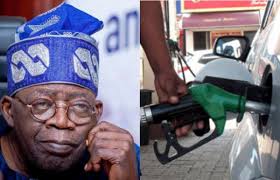In terms of the role of political parties, the representative of the National ConscienceParty underscored the manipulation of information by political elites, and religious fanatics, which is exacerbated by widespread ignorance among the populace.
The need was therefore stressed for political education to combat the influence of disinformation. Other political parties were also emphatic that media literacy is even more critical at a time when state agencies themselves allegedly dish out narratives that are not accurate. Instances were provided where state-owned media, particularly the Edo Broadcasting Service (EBS), sometimes fuelled misleading narratives
Key Issues Identified by Stakeholders Engaged in Edo State
During this information assessment, the CDD-West Africa team met with key stakeholders in Edo State. These stakeholders include political parties, INEC, the Police and the National Orientation Agency. The discussions highlighted several key trends in the political and information ecosystem in Edo state, emphasising the pervasive issue of disinformation, especially during elections. Political actors, media outlets, and social media platforms, such as WhatsApp and Twitter, were identified as key drivers of false information.
Media outlets, both government-run and factional, often overlap with political interests, while social media amplifies disinformation, making it difficult to control. Vulnerable groups, including women, persons with disabilities (PWDs), nd the youth, were identified to be particularly affected by disinformation. Women are frequently targeted with narratives that discourage political participation, reinforcing gender stereotypes. PWDs struggle with accessing voter information, despite some inclusive efforts by INEC.
Meanwhile, the youth, though digitally connected, are often exposed to trivial and false stories online. The state’s free internet provided by the state government was criticised by some members of the focused groups for political motivations and lack of effective functionality. Electoral processes also suffer from misinformation, particularly regarding results and the electoral system, such as misunderstandings around the Bimodal Voter Accreditation System (BVAS). INEC and other stakeholders stressed the role of misinformation in misleading the public about candidate legitimacy. Efforts to combat disinformation face challenges in information dissemination. NOA employs public education strategies but struggles to overcome gaps, particularly among uneducated
communities. Civil society groups and media also play roles in combating disinformation but are limited by infrastructure and political biases.
The accessibility of reliable internet, especially in rural areas, is a significant barrier. Social and cultural barriers, including entrenched patriarchy and educational gaps, further complicate political engagement. Patriarchal structures stifle women’s political roles, while widespread ignorance and lack of political education leave the general population vulnerable to disinformation.
The NOA emphasised its role in public enlightenment, stressing that its non-partisan stance prevents it from classifying or debunking political disinformation unless directed by its headquarters. They described their media engagement efforts, which include collaborations with media organisations in the state and their weekly publication initiative known as The Explainer, which addresses issues both at the state and national levels.
Their public engagement strategy includes door-to-door information sharing and maintaining a presence in every Local Government Area to effectively communicate government policies in various local dialects. While pointing out the challenges posed by the uneducated populace, who are most susceptible to information manipulation, they called for more effective collaborations and recommended the establishment of fact-checking hubs to curb the spread of For INEC, disinformation in the Edo State context poses several risks, especially in the context of inducing voter apathy. The INEC state office is optimistic about the
various initiatives it has implemented to curb information manipulation. These include public campaigns, voter education, and close collaboration with security agencies and community leaders. This assessment also found that INEC has also taken steps to improve the inclusion of Persons with Disabilities (PWDs) during elections.
The Commission identified social media as a primary source of disinformation, often propagated by anonymous accounts. It however called for closer cooperation with observers and CSOs to address and debunk false information effectively.
In terms of disinformation, which circulated about the loss of 4000 Bimodal Voter Accreditation System (BVAS), the Commission was quick to reassure that it has sufficient BVAS devices for the forthcoming election. It also expressed confidence in online and offline operational systems as such network issues would not affect the credibility of the election. Speaking on the issue of inclusivity for Persons with Disabilities (PWDs), INEC similarly explained that while there are no designated voting points for them because they reside in different locations.
However, preference would be given to individuals with disabilities, pregnant women, and the elderly on Election Day.
As the 2024 Edo State governorship election approaches, the political landscape has been characterised by the challenge of information manipulation particularly within the electoral context. The prevalence of disinformation is with a focus on identity politics, gendered disinformation, and economic manipulation.
These campaigns leverage both online and offline platforms to influence voter behaviour, with significant potential to mislead voters, deepen societal divisions, and undermine the integrity of the electoral process. Marginalised groups, including women and ethnic minorities, are particularly vulnerable to these tactics.
While efforts are being made by various institutions, including NOA, INEC, and CSOs, to combat the spread of false information, there is a need for more coordinated and proactive measures























